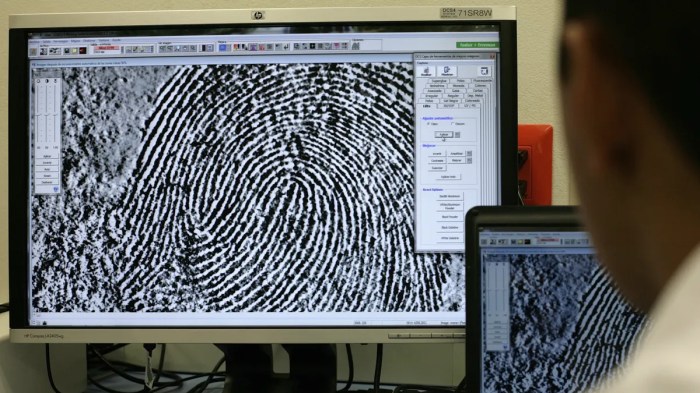Police unlock murder victims phone by 3d printing his fingerprint – Police Unlock Murder Victim’s Phone Using 3D Printed Fingerprint – a chilling headline that reflects a new era of technological advancements in criminal investigations. This method, while seemingly innovative, raises serious ethical and legal concerns, blurring the lines between justice and privacy.
The ability to recreate a fingerprint with 3D printing technology allows law enforcement to bypass security measures on a deceased individual’s phone, granting access to sensitive data. While this technology offers potential benefits in solving crimes, it also presents significant risks to individual privacy and raises questions about the boundaries of digital security in the face of death.
Ethical Considerations
Unlocking a murder victim’s phone using their fingerprint raises significant ethical concerns, primarily due to the potential for privacy violations and the legal implications of using 3D printed fingerprints. The use of this technology in such a sensitive context demands careful consideration and a balanced approach.
Privacy Violations, Police unlock murder victims phone by 3d printing his fingerprint
The act of unlocking a murder victim’s phone using their fingerprint inherently involves accessing personal data. This data could include sensitive information such as:
- Personal communications, including messages, emails, and social media interactions.
- Financial details, such as banking information and online transactions.
- Medical records and other sensitive health information.
- Location data and tracking information.
- Photos and videos, which may include private and intimate moments.
Accessing this data without proper authorization raises serious concerns about privacy violations. Even though the victim is deceased, their right to privacy persists, and their personal information should be protected.
Legal Ramifications
The legal implications of using 3D printed fingerprints to unlock a murder victim’s phone are complex and evolving.
- Legal Authority: Law enforcement agencies must have a legal basis for accessing a deceased person’s personal data. This typically involves obtaining a warrant based on probable cause.
- Privacy Laws: Data protection laws, such as the General Data Protection Regulation (GDPR) in Europe, may restrict the access and use of personal data even after death.
- Biometric Data: The use of biometric data, such as fingerprints, raises specific legal challenges. Some jurisdictions may have regulations governing the collection, storage, and use of such data.
The legal framework surrounding the use of 3D printed fingerprints in criminal investigations is still developing, and legal challenges are likely to arise in the future.
Final Thoughts: Police Unlock Murder Victims Phone By 3d Printing His Fingerprint
The use of 3D printed fingerprints in criminal investigations presents a complex ethical and legal dilemma. While the technology offers potential for solving crimes, it also raises serious concerns about privacy and the potential for misuse. As this technology continues to evolve, society must grapple with the implications for individual rights and the balance between justice and privacy in the digital age.
The police successfully unlocked a murder victim’s phone using a 3D-printed fingerprint, showcasing the advancements in forensic technology. This innovative approach highlights the importance of staying ahead of technological advancements, similar to the gear s2 value pack update which provides enhanced features and security for users.
By utilizing cutting-edge techniques, law enforcement can now access crucial information from locked devices, potentially leading to breakthroughs in solving complex crimes.
 Securesion Berita Informatif Terbaru
Securesion Berita Informatif Terbaru
